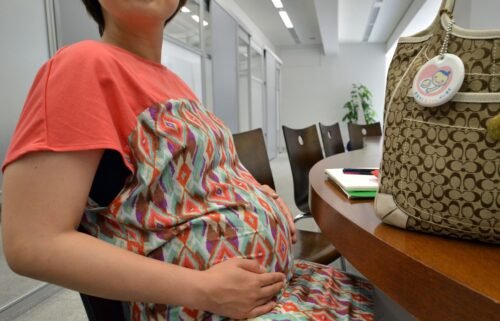What does the end of the Covid-19 national emergency mean? Our medical analyst explains
By Katia Hetter, CNN
The national public health emergency around Covid-19 officially ends in the United States on Thursday, May 11, more than three years after it was first declared. This comes as the World Health Organization announced last week that Covid-19 no longer constitutes a global health emergency.
What does all this mean about the threat Covid-19 poses to people? Is it right to end the worldwide and US states of emergency, or is it too soon? What have been some key lessons learned during the past three years? What investments must continue to prevent and treat this coronavirus? And what should people who remain at high risk for severe Covid-19, and their family members, do?
To help us with these questions, I spoke with CNN Medical Analyst Dr. Leana Wen. Wen is an emergency physician and professor of health policy and management at the George Washington University Milken Institute School of Public Health. She previously served as Baltimore’s health commissioner.
CNN: What does the end of the Covid-19 state of emergency mean for people?
Dr. Leana Wen: I think it’s very important to clarify that declarations of ending the emergency around Covid-19 does not mean that Covid-19 is over. Rather, the declarations have a more bureaucratic meaning. In the United States, for example, the state of national emergency allowed hospitals to operate with greater flexibility. Some of these flexibilities will end. Others, like those allowing for more telemedicine services, will stay in some form even after the emergency declaration ends.
Just because the official declaration is ending doesn’t mean that the virus has magically disappeared. It hasn’t. According to the US Centers for Disease Control and Prevention, there were more than 77,000 new Covid-19 cases last week. This is likely a significant underestimate, given that many people are testing for coronavirus at home or not at all.
CNN: Do you think it was too soon to end the emergency declaration?
Wen: No, I don’t. Another important measure is that the number of Americans being hospitalized with Covid-19 is at the lowest level it has been since the beginning of the pandemic. This is because nearly everyone has some immunity to the coronavirus and because of the widespread availability of treatments.
More than 96% of Americans have either had the coronavirus, been vaccinated or both, according to CDC data. Prior exposure through recovery, vaccination or both conveys some protection against severe disease. In addition, there are treatments available for those at high risk. The antiviral medication Paxlovid, for example, reduces the risk of hospitalization or death by about 80% if it’s taken within five days of symptom onset.
Every emergency has to an end at some point. At this point, when there is widespread immunity and widely available vaccines and treatments, I think it’s reasonable for the official declaration to end. That doesn’t mean Covid-19 no longer poses a threat or that it won’t be in the future; rather, it needs to be understood as we do other serious diseases. We still must monitor for new variants and work to prevent and treat the coronavirus, with a focus on protecting the most vulnerable individuals.
CNN: Looking back, what have been some key lessons learned during the past three years?
Wen: In my view, there have been three key lessons. First, as much as science has delivered incredibly to allow us to have safe and effective vaccines in record time, these advances can only work if people use them. Even as second bivalent boosters have become available to some, it’s disheartening to see that not even half of people 65 and older have received their first bivalent booster. Much more work needs to be done to deploy vaccines and treatments to high-risk populations.
Second, we’ve seen how much public health depends on public trust. When that trust is eroded, it’s difficult to get back. I worry about what will happen if there is another infectious disease outbreak, and I worry about the erosion of trust in existing public health measures as evidenced by the drop in routine childhood immunizations for polio, measles and chickenpox.
Third, the pandemic unveiled the many problems with our health care system. The state of emergency declaration allowed for some temporary fixes, like providing free care for patients with Covid-19 and extending Medicaid coverage for low-income children and families. The end of the state of emergency means that some of these protections will come to an end and will leave millions of vulnerable people without safety net coverage.
This isn’t justification for forever extending the state of emergency, but rather it’s a reminder that the urgency to reform the health care system that existed before the pandemic still remains after the official declaration ends.
CNN: What investments must continue to be made to prevent and treat Covid-19?
Wen: We need to develop better vaccines — vaccines that can reduce not only severe disease but also infection and transmission, and vaccines that provide broad coverage against not only existing variants but ones that may develop in the future. There’s also a need for improved treatments, which continue to be needed for the elderly and people with chronic medical conditions that make them more susceptible to severe disease from Covid-19. Moreover, much more should be done to understand, prevent and treat long Covid, and there must also be continued investments in surveillance efforts to quickly detect and contain variants of concern as they emerge.
CNN: What should people who remain at high risk for severe Covid-19, and their family members, do?
Wen: People who remain at high risk for severe Covid-19 and their loved ones should use available tools to protect themselves. At the very least, keep up to date on vaccines, and speak with your health care provider about whether you are eligible for a second bivalent booster. Know which treatments you are eligible for, and have a plan to access them.
Vulnerable individuals should then decide what additional levels of protection they want. Some may still wish to mask in indoor crowded spaces, in which case they should be sure to wear a high-quality, well-fitting mask in these places. Others may continue to test before indoor get-togethers or, especially as the weather is getting warmer, prefer to gather outdoors. All of these are reasonable precautions to be taking for those at high risk for severe outcomes from Covid-19 and for those who continue to prioritize avoiding the coronavirus.
The-CNN-Wire
™ & © 2023 Cable News Network, Inc., a Warner Bros. Discovery Company. All rights reserved.


